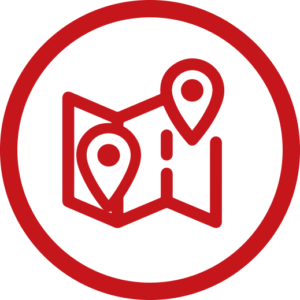 While artificial intelligence (AI) has undoubtedly been widely embraced as a “game changer” across industries, skeptics are quick to point out AI’s limits within biopharma and healthcare. However, a closer look at the rationale for these criticisms uncovers a common thread where a blind focus on the “science” of predictive analytics has come at the expense of the intuitive “art” of effective strategy. The skeptics are right. Analytics cannot exist in a vacuum.
While artificial intelligence (AI) has undoubtedly been widely embraced as a “game changer” across industries, skeptics are quick to point out AI’s limits within biopharma and healthcare. However, a closer look at the rationale for these criticisms uncovers a common thread where a blind focus on the “science” of predictive analytics has come at the expense of the intuitive “art” of effective strategy. The skeptics are right. Analytics cannot exist in a vacuum.
Just as a GPS system is only effective if you know the address of your destination, AI is only as effective as the direction guiding it.
Because of this, it demands the integration of cross-functional teams that can assess and incorporate analysis from conception to execution. And while this can be said of all industry applications, the importance is even more marked in biopharma given the unique nature of healthcare and the nuances of patient-level data.
Using AI + HI to build a holistic understanding of the market landscape
Currently, many pharma companies and data science vendors work in silos to execute AI initiatives, or they limit the utilization of AI to select functions. Cross-functionally developed human insights (HI) define the questions to be answered, structure the assessment of data, build the models that address the questions, and translate the model outputs into action. However, AI doesn’t live in just one function or unit. Monitoring and analyzing data in this way can restrict us from seeing the insights that inform a more holistic understanding of the market landscape.
Here’s why this matters: Data has its own language, and—like all languages—it even has its own dialects. Teams within a biopharma company also have their own language and dialects. Translators are needed at all stages of the process to structure the strategic questions posed by the marketing or sales team and the translate model outputs to define implications.
Who is needed? If we think of AI as a journey, there are 3 core roles paramount to successfully completing this journey from start to finish.
Case Example: How AI and Human Insights Revamped Go-To Market Model
And, what does this look like when executed properly? The following case study illustrates how insight-driven AI and HI revamped the go-to market model in the rare disease space.
 The Situation
The Situation
 The Approach
The Approach
 The Impact
The Impact
- Sales representatives did not have a target list, and called on clinicians without a home office-driven strategy
- Many specialists were involved in treating the disease, but the client was lacking effective targeting and segmentation data
- Product was not universally accepted as part of a standard of-care regimen
- The Compass – Medical team: worked to define patient inclusion criteria for this rare disease, which did not have a specific diagnosis code
- The Map – Marketing team: segmented targets for field force optimization to ensure targeting of the highest value clinicians in an objective, efficient manner. The team developed an effective communication strategy to change an individual clinician’s behavior—based on our data analytics—to drive prescribing
- The Guide – Data scientists: built a predictive model to identify the most valuable and influential clinicians and their respective networks
- The integration of analytics, sales, and marketing led to a 36% increase in new patients vs goal
Change the game by integrating medical Knowledge, marketing Insights, and data science
This case study highlights why an effective data science partner needs to integrate with the key roles within the pharma company and partner with them to translate their depth of knowledge into inputs that will support an effective AI-driven marketing program. Medical, marketing, and data science work in concert, artfully bridging data insights into actionable execution.
The systematic integration of cross-functional HI within AI ensures that this “game changer” actually changes the game..




